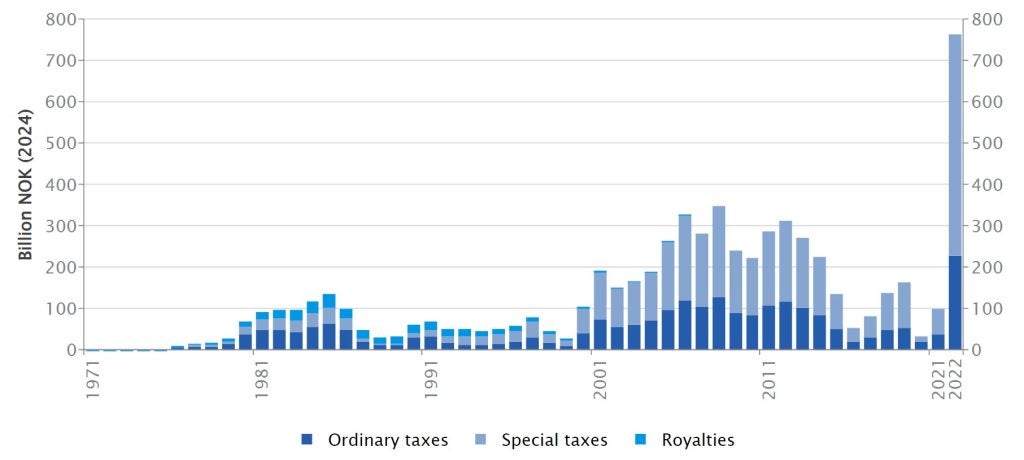
If you wander around the Norwegian capital of Oslo, you will find an abundance of electric vehicles (EVs) on its roads. In recent years, Norway has become the EV capital of the globe, with reports suggesting that the number of EVs on the road could overtake the number of petrol cars in Norway as soon as the end of this year.
The reason for the popularity of EVs in Norway isn’t hard to understand; the country offers subsidies and incentives for EV owners. EVs are exempt from paying registration fees, EV owners can get deductions on their income tax, many places offer free parking for EVs, drivers are exempt from city tolls, and there is an abundance of free chargers across every town and city in Norway – 2,000 of them in Oslo alone.

Discover B2B Marketing That Performs
Combine business intelligence and editorial excellence to reach engaged professionals across 36 leading media platforms.
Arguably the biggest factor comes in the form of sales tax exemptions. EV manufacturers don’t have to pay sales tax, making it far cheaper to buy a new EV in Norway. These incentives clearly work: of the 126,953 new cars sold in the country in 2023, 82% were EVs, compared with 7.6% in the US.
Funding the green transition through fossil fuel taxes
Norway’s approach to funding these green incentives is interesting: much of the funding comes from Norway’s Sovereign Wealth Fund, an almost $1trn (Nkr10.83trn) pot comprised almost entirely of oil and gas money.
While Norway is the largest hydrocarbon producer in Europe, producing 1.98 million barrels per day (mbbl/d) of crude oil in 2023, it very much takes an attitude of “don’t get high on your own supply”, with 99% of the country’s electricity use powered by hydroelectricity. The country imposes heavy taxes on fossil fuel production in its waters, and much of this has been used to fund the EV incentives.
Here, we take a look at this interesting paradox: that fossil fuel money could be the solution to boosting EV adoption around the world.

US Tariffs are shifting - will you react or anticipate?
Don’t let policy changes catch you off guard. Stay proactive with real-time data and expert analysis.
By GlobalDataThe heavy taxes Norway applies to oil and gas producers are a major income stream. According to Norsk Petroleum, total estimated tax payments from petroleum activities hit a whopping Nkr597bn in 2023. Production of petroleum resources is subject to a combined marginal tax rate of 78%, and the taxes paid have skyrocketed in recent years.

Could this be applied elsewhere?
There have been many calls to apply similarly heavy taxes to oil and gas producers in other countries, especially as Russia’s invasion of Ukraine has driven prices up over the past two years.
Other nations have considered the idea of applying windfall taxes to oil and gas producers, including the UK, which has offshore oil and gas assets in its own North Sea claim. A 2022 report by environmental think tank Green Alliance suggested that by bringing windfall taxes on oil and gas companies up to match Norway’s rate of tax, an additional £6.6bn ($8.2bn) could be brought into the UK.
Speaking to The Guardian in 2022, Heather Plumpton, policy analyst at Green Alliance, said: “Why should oil and gas companies pay less to drill in British waters than they do across the North Sea in Norway? This is a question of whether the government considers the profit margins of fossil fuel companies more important than balancing the books.
“When there is a black hole in the public finances and people are struggling with the cost of living, it is not right that the fossil fuel industry isn’t paying a fair rate of tax.”
The UK Government uses a theoretical £6bn cash injection in much the same way Norway has, and funds incentives and infrastructure for EV drivers. It is on the priority list: in March 2024, the UK Department for Transport announced that an additional 44 local councils would be aided by a £381m scheme to roll out more widespread EV charging points. Clearly, the government could do a huge amount with billions more in funds.
Increasing charging point availability is arguably the most impactful thing governments and policymakers could do to boost the uptake of EVs.
Edmund King, president of the AA, a UK-based insurance company, noted that: “AA surveys show that one of the main reasons why many drivers are hesitant towards switching to EVs is the perception that there are not enough charging points.” He added: “To give confidence to drivers now and for the future, we need to overcome these barriers, which will help unlock cleaner, greener motoring for all.”
Norway’s approach to incentivizing EV adoption through subsidies funded by oil and gas taxes offers a compelling blueprint for other nations hoping to speed up the transition away from fossil-powered cars. By using taxes from the fossil fuel industry to promote EV usage, Norway demonstrates that, sometimes, positive environmental charge can come from traditionally ‘dirty’ industries – and that the road to decarbonisation is often more nuanced than it may initially seem.
As the world grapples with the urgent need to reduce carbon emissions, Norway stands as an example of how innovative policies can drive positive environmental outcomes while boosting the economy.





